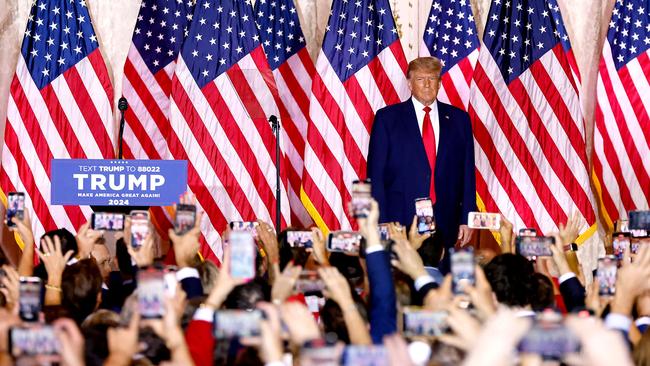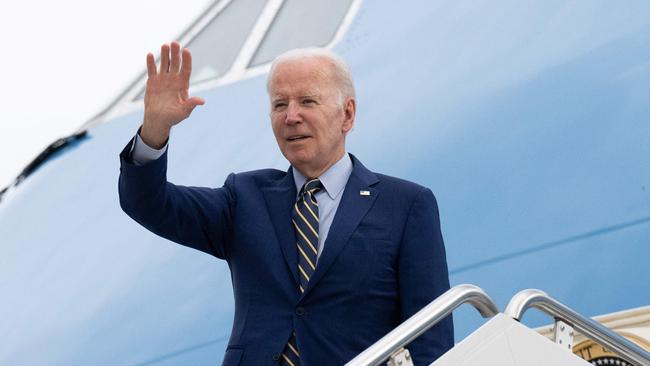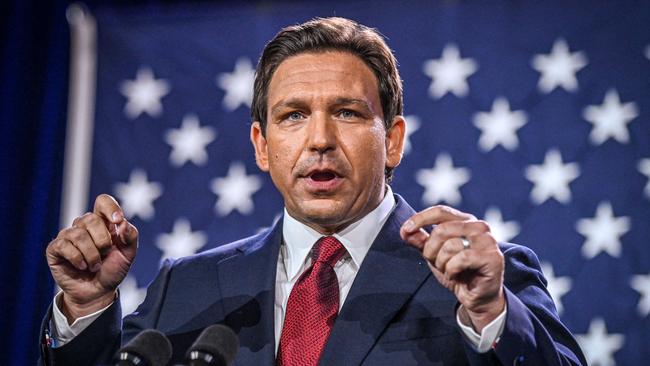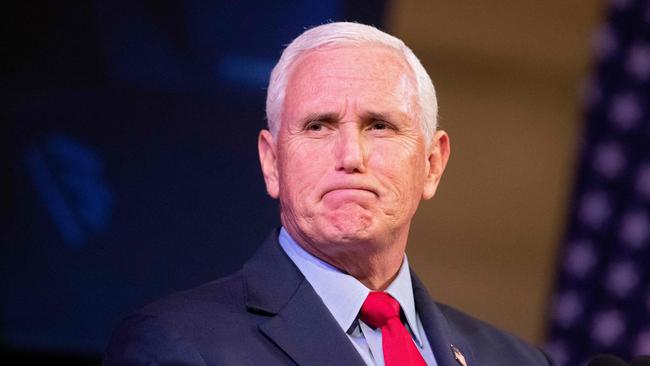Donald Trump’s third White House campaign hamstrung by election-losing record
Only one US president has lost the White House and won it back. Donald Trump wants to be the second — but allies, donors and his own daughter won’t help.
World
Don't miss out on the headlines from World. Followed categories will be added to My News.
Only once has an American president lost the White House and won it back four years later.
Could Donald Trump do in 2024 what Grover Cleveland did in 1892?
Right now, you wouldn’t bet on it. But he was at far longer odds in 2015, when he rode down a gold escalator to a room filled with paid actors and announced his first presidential run.
Back then, Trump was treated as a celebrity, not a politician, allowing him to exploit a divided Republican Party to claim the nomination and then break all the conventional rules in a general election campaign which even members of his own team expected to fail.
Things are different this time around, as Trump acknowledged in a moment of honesty while confirming his third White House bid on Wednesday.
“I don’t like to think of myself as a politician, but I guess that’s what I am,” Trump said.
“I hate that thought.”

As a politician, Trump now has a record on which he can be judged – and the evidence so far suggests American voters have made up their minds.
Republican leaders hoped last week’s midterm elections would be a referendum on Joe Biden, whose approval rating had slumped to historic lows amid a cost of living crisis. In the end, however, Trump turned the midterms into a referendum on himself.
In the House of Representatives, the Democrats delivered Biden the best result for a first-term president in two decades. While they lost their majority, the Republicans will only hold a narrow advantage largely because Trump’s preferred candidates underperformed their party colleagues by about five percentage points on average.
In the Senate, the Democrats managed to extend their majority as Trump’s candidates also fell short in key battleground states.
Those results – after defeats in 2020 and the 2018 midterms – have left Trump in what some believe is his weakest position, even weaker than in the wake of the January 6 insurrection.

In the words of Republican New Hampshire Governor Chris Sununu: “He’s a loser … And most Republicans agree with that.”
Proving Sununu’s point, three billionaire party mega-donors this week pulled their support for Trump in 2024. His own daughter Ivanka, who was a key adviser in Trump’s White House, did not even attend his campaign launch at his Florida resort Mar-a-Lago.
“This time around, I am choosing to prioritise my young children … I do not plan to be involved in politics,” she said.
Among those who did show up for Trump’s speech – which was derided by critics including his former press aide as “low-energy” and “uninspiring” – some tried to make an early exit, only to be blocked at the door.
None of this is necessarily insurmountable for Trump, largely because of what he hailed on Wednesday as “the greatest movement in history”.
Polling suggests about a third of Republicans remain loyal to the former president, giving him both a financial powerbase of small donations and a political advantage over others who enter the race for the party’s 2024 nomination. Indeed, that was the recipe for Trump’s 2016 victory, when 16 other candidates split the party and left him as the last man standing.

After his resounding midterm re-election, Florida Governor Ron DeSantis is now Trump’s top rival, with a poll released this week by a conservative action group suggesting he holds double-digit leads over his one-time mentor in four critical states.
But that survey was based on the assumption that the nomination would be a two-horse race, a highly unlikely prospect as others including former vice president Mike Pence, Virginia Governor Glenn Youngkin and ex-secretary of state Mike Pompeo consider running.
That is why DeSantis is sidestepping Trump’s attacks and telling pundits asking about 2024 to “chill out”. He has a point – Americans will not return to the polls for 717 days.
But the midterms were the marker to move on to the next election campaign, according to Charles Edel, the Australia chair at the Center for Strategic and International Studies.
“Every Australian friend I talked with as we approached (the May federal election) kept telling me how exhausted they were, that it had been a long six weeks,” he said.
“I said, well, try doing it perpetually.”

While Trump rushed straight into the field, the surprisingly strong Democratic results have emboldened Biden and given him time to figure out his own political future.
Some senior members of his party believe he should not seek a second term, a view shared by two-thirds of Americans according to a CBS poll last week. But by outperforming expectations, Biden can now make that decision on his own terms, likely early next year.
“Our intention is to run again,” he said in a post-election press conference.
Biden also used his victory lap to declare the midterms were a “good day for democracy”, with the defeat of pro-Trump candidates justifying his strategy of targeting his predecessor’s refusal to concede defeat in 2020, and his election lies that fuelled the deadly Capitol riot.
Tellingly, Trump refrained from repeating those views when announcing his candidacy on Wednesday, having perhaps belatedly recognised how the saga eroded his popularity with independent and moderate Republican voters.
If only he had followed the lead of Grover Cleveland, who held an umbrella over Benjamin Harrison when he was inaugurated on a rainy day in 1889, only to defeat him in 1892.
When Biden was sworn in last year, Trump did not even attend.





